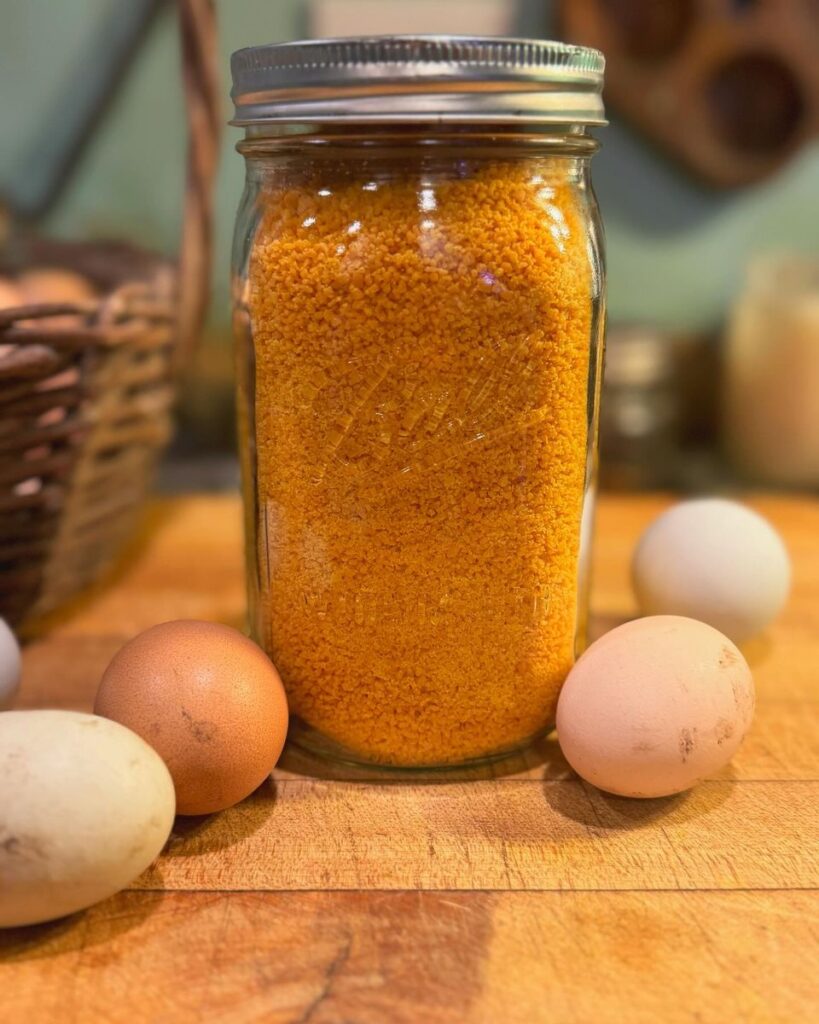By Lyndsey Braun-Palmer
Everything spring-like is springing into action, including egg production! I’d like to introduce a favorite method for creating shelf-stable eggs – dehydration! Dehydrating eggs when you are producing more than you need is a great way to store this food essential for future use. Here’s my step-by-step guide.
Ingredients
- Fresh eggs
Instructions
- Crack the eggs into a bowl and blend them thoroughly until the yolks and whites are fully mixed.
- Pour the blended eggs onto a non-stick dehydrator tray or lined baking sheet if using an oven. Spread the mixture evenly to ensure consistent drying.
- Dehydrator option: Set your dehydrator to 135°F (57°C) and let it run for about 10-12 hours until the eggs are completely dry and brittle.
- Oven option: Preheat oven to the lowest possible setting (around 150°F or 65°C). Place the baking sheet in the oven and let the eggs dry for 10-12 hours, checking occasionally.
- Once the eggs are fully dried, break them into smaller pieces and grind them into a fine powder using a food processor or coffee grinder.
Usage:
- To rehydrate eggs: For each egg needed, mix 1 tbsp egg powder with 2 tbsp water. Let it sit for five minutes before using it, as you would a fresh egg.
- For baking: If using the eggs in baked goods, you can skip the rehydration step. Simply add the egg powder and the corresponding amount of water directly into your mixing bowl, along with the other ingredients.
Tips:
- Store the egg powder in an airtight container in a cool, dry place to maintain its shelf life.
- Label the container with the date to keep track of freshness.
- Dehydrated egg powder can last up to a year if stored properly.

